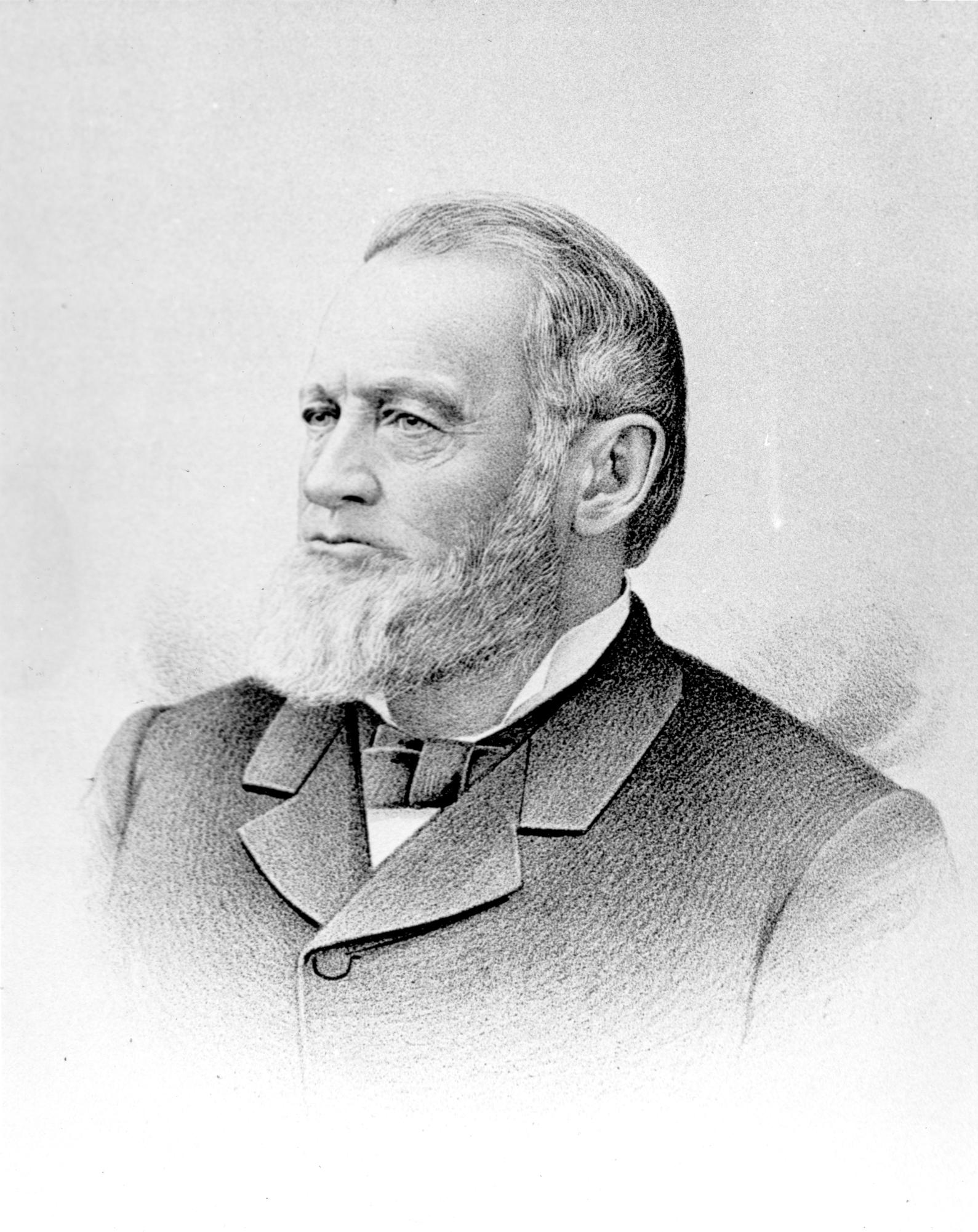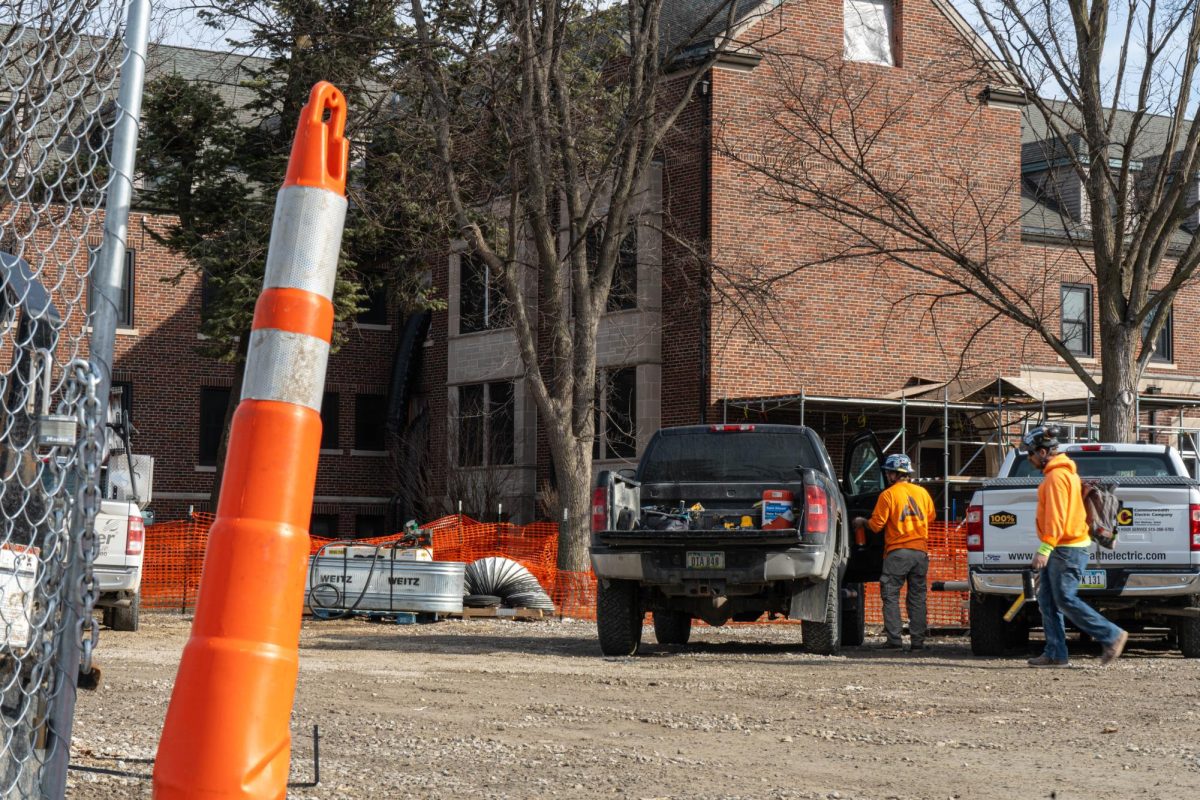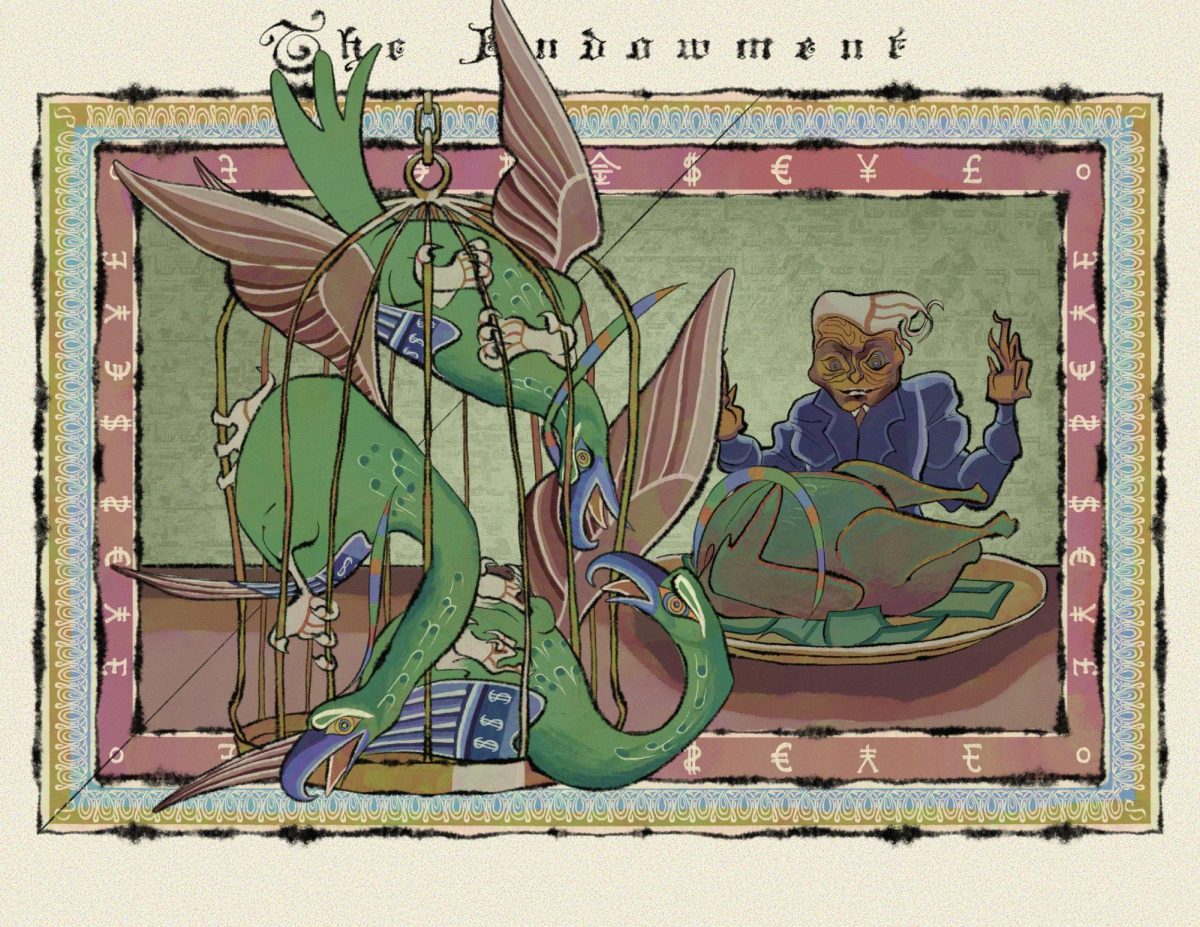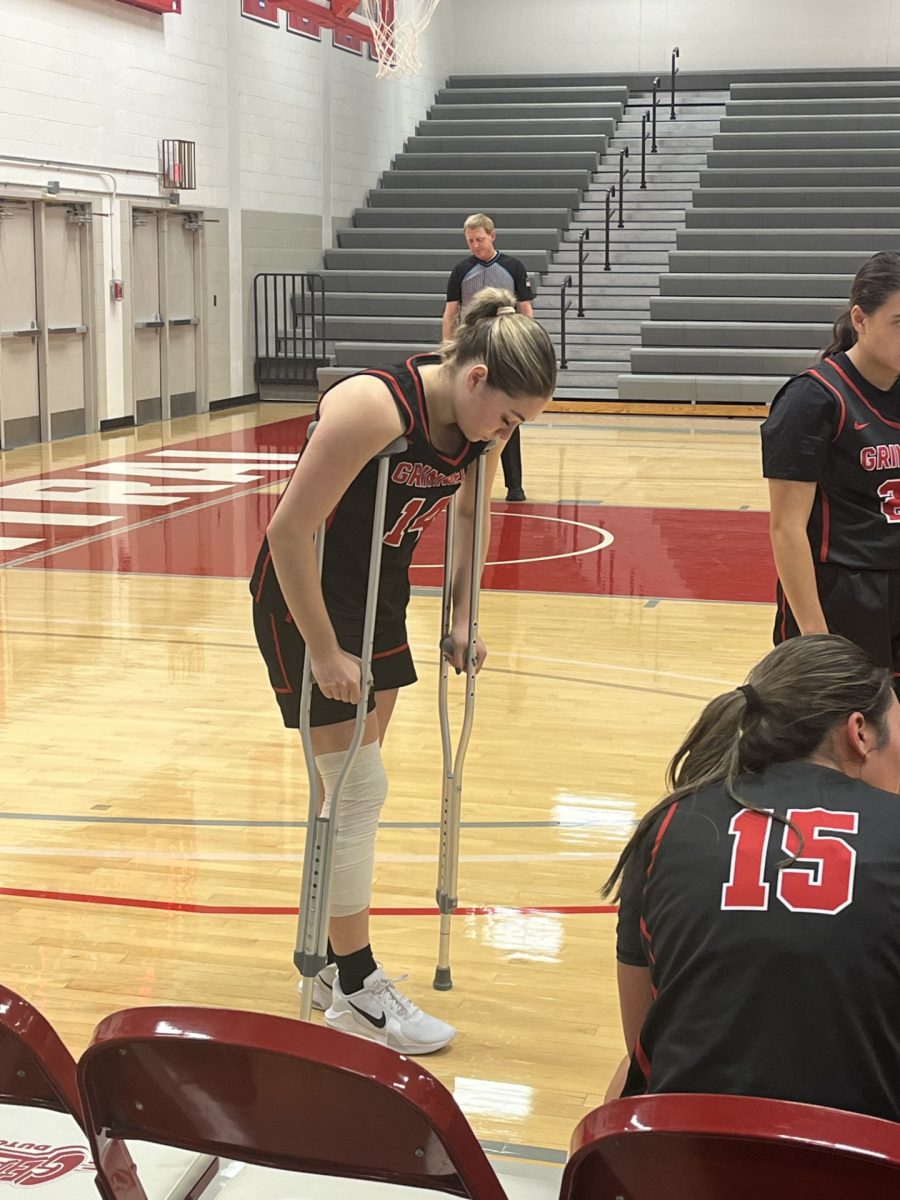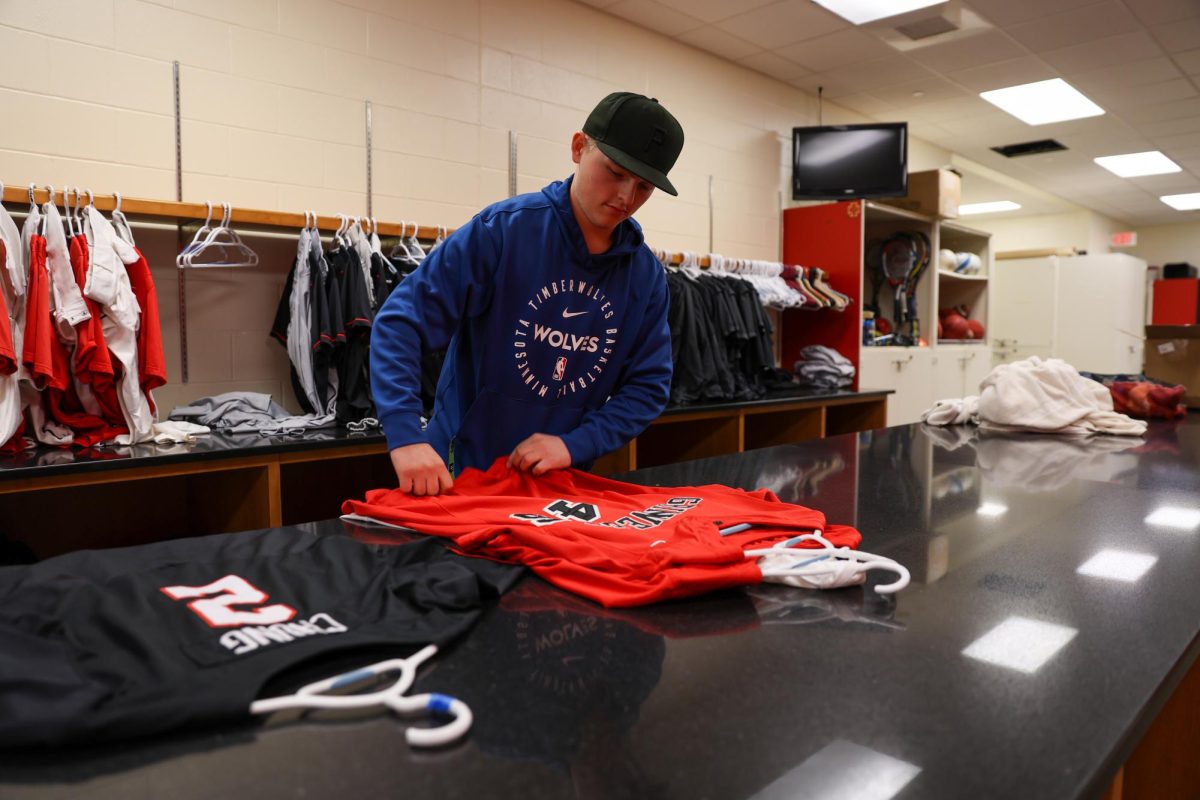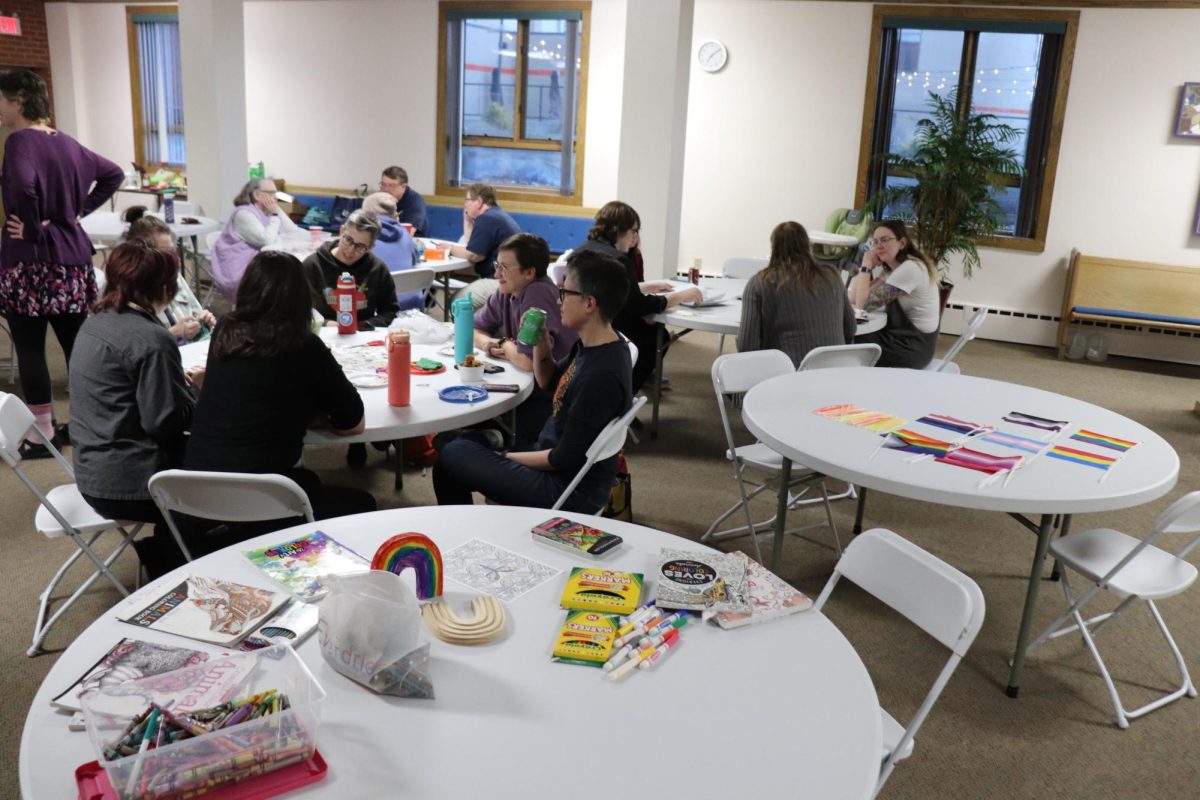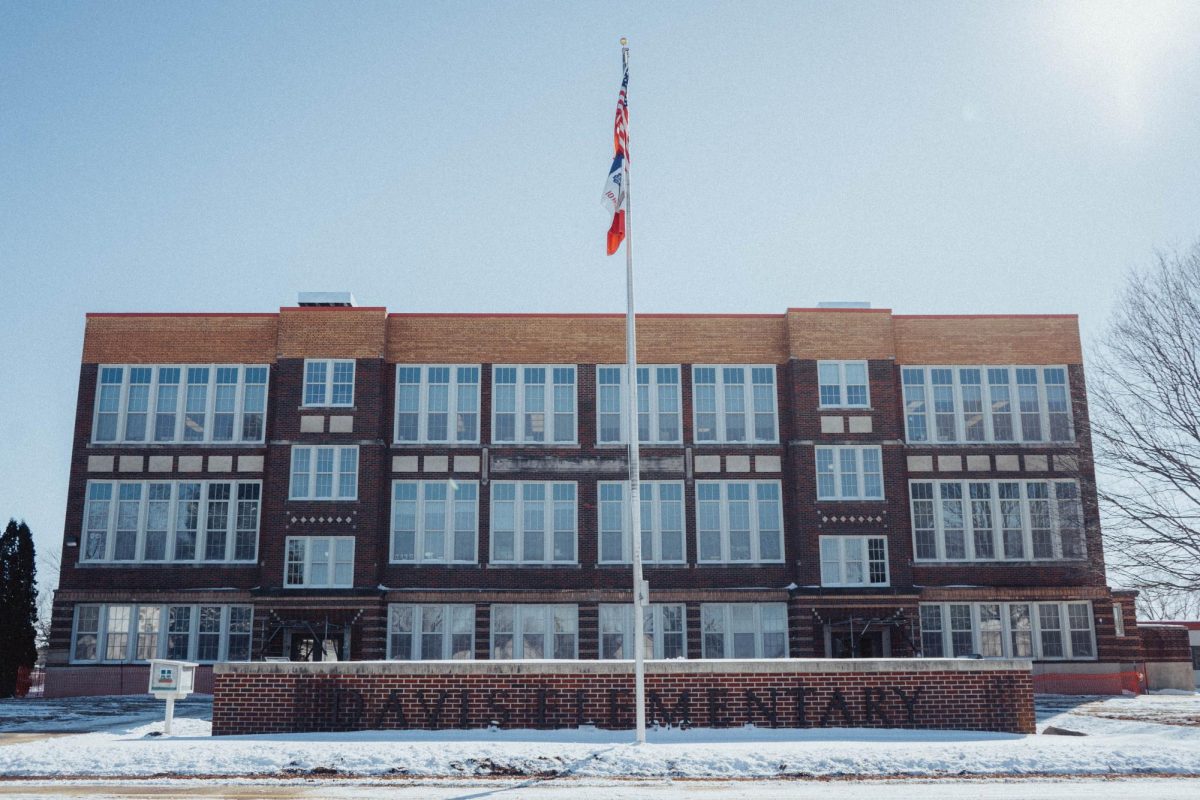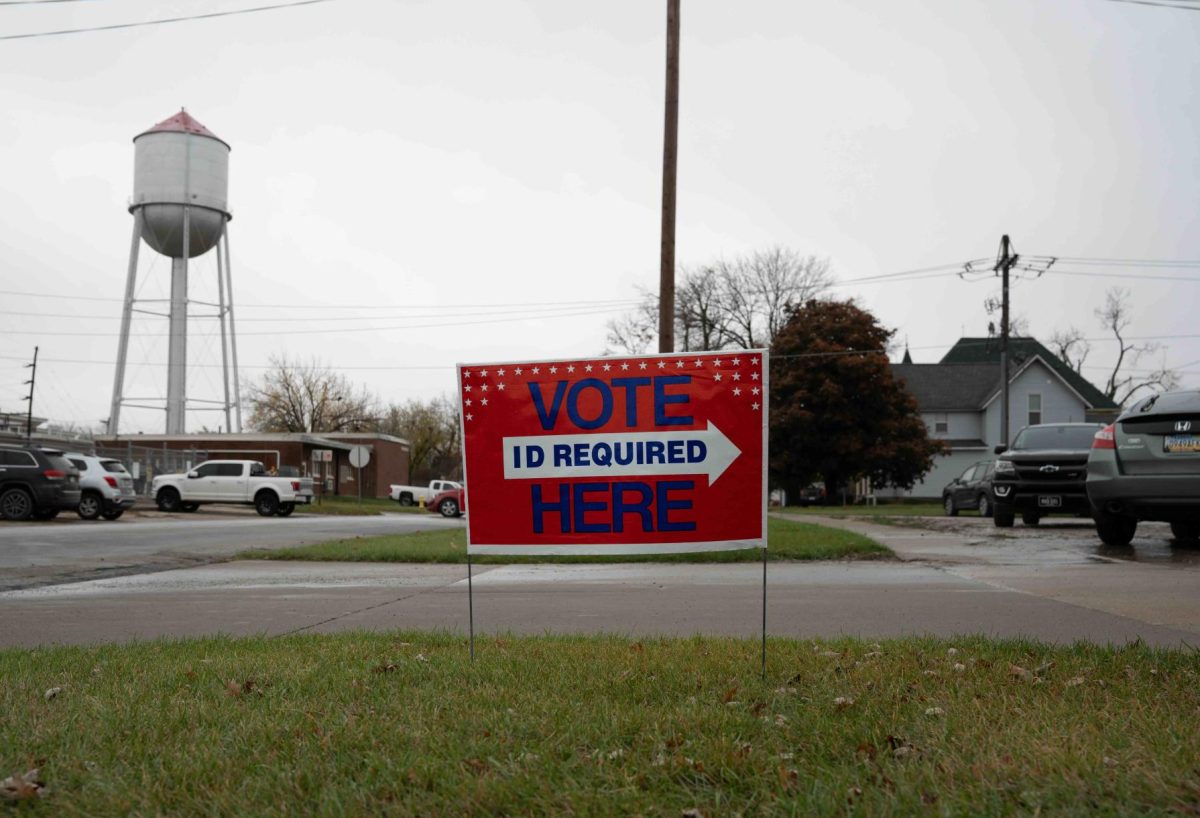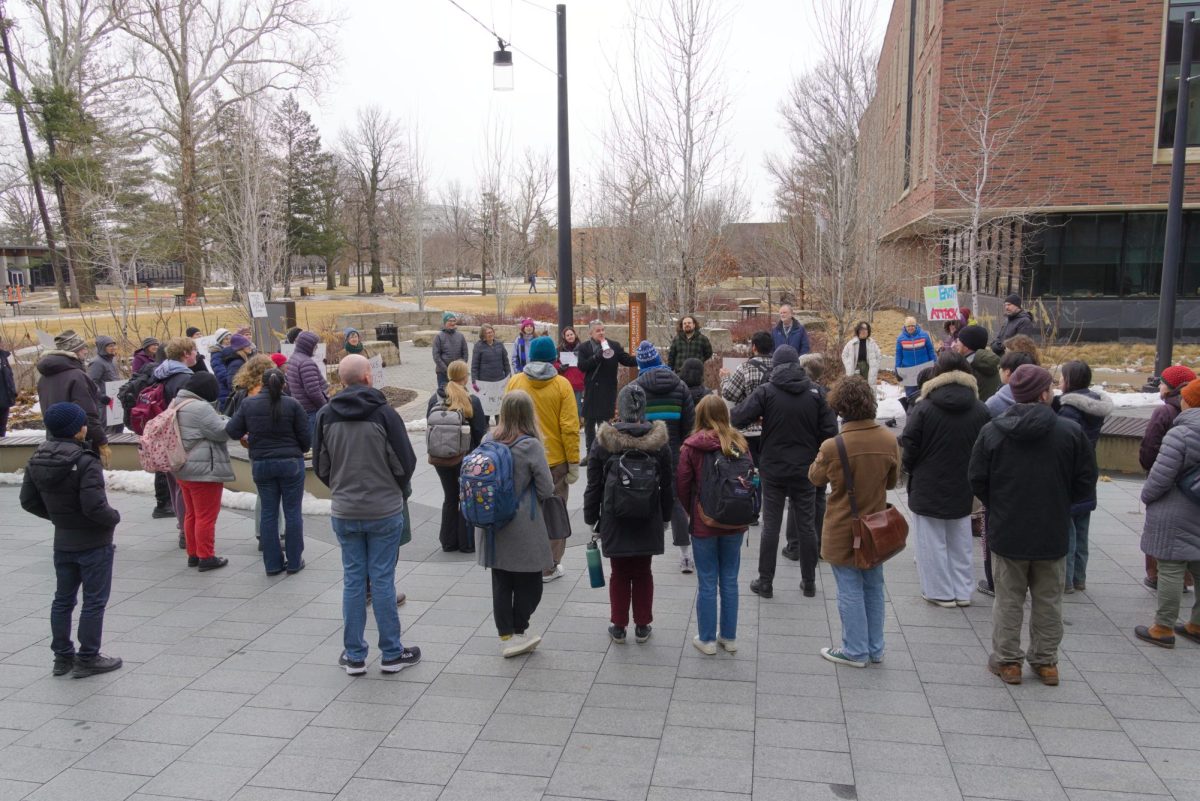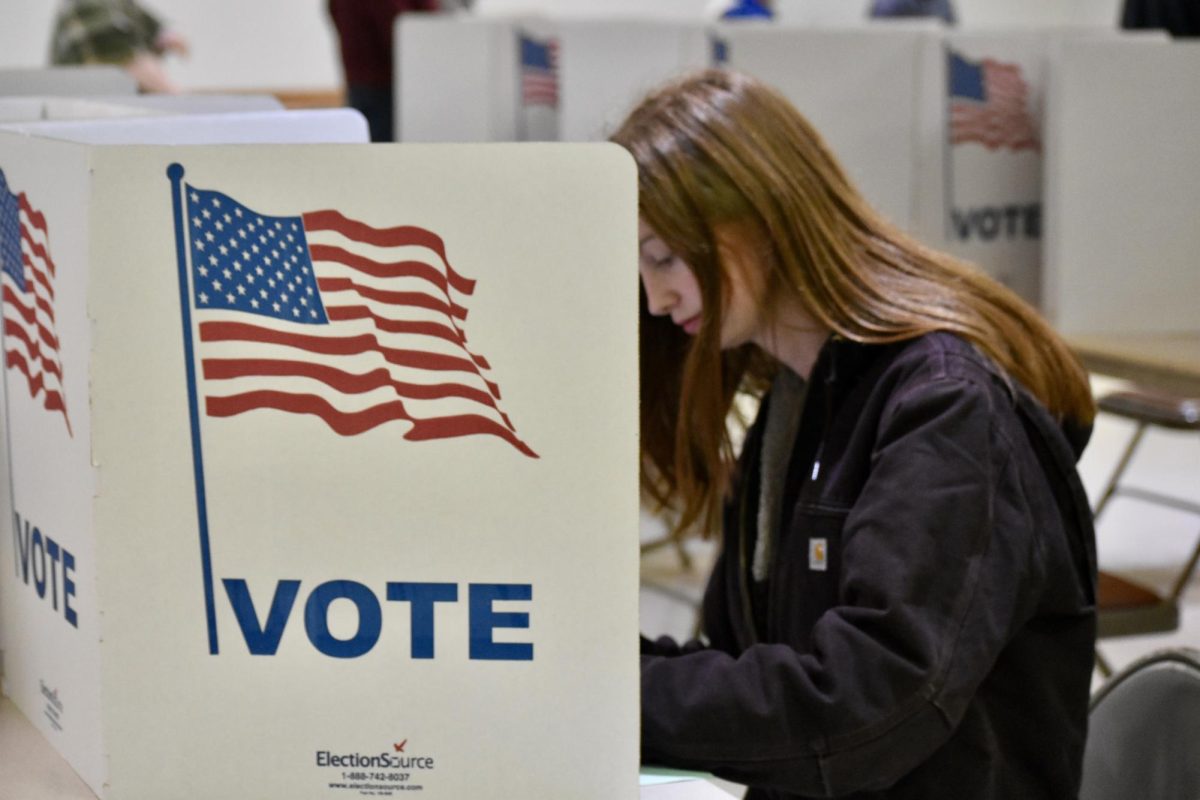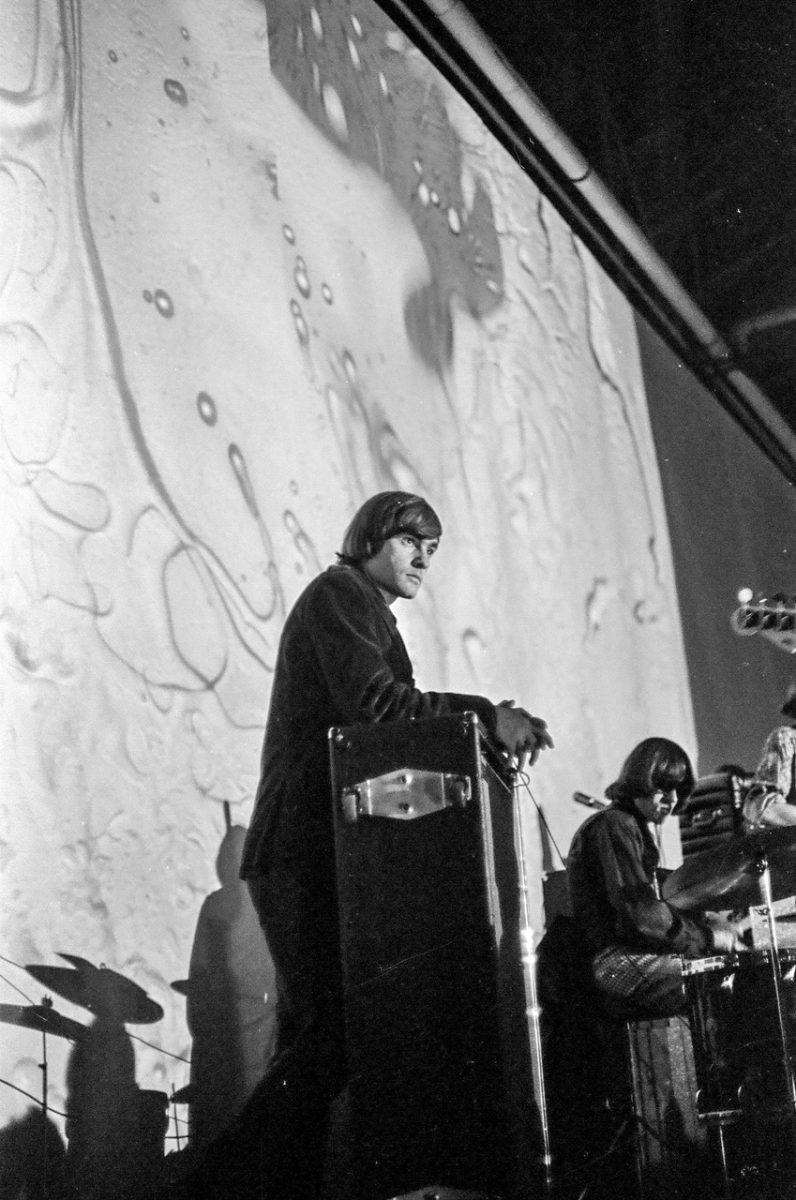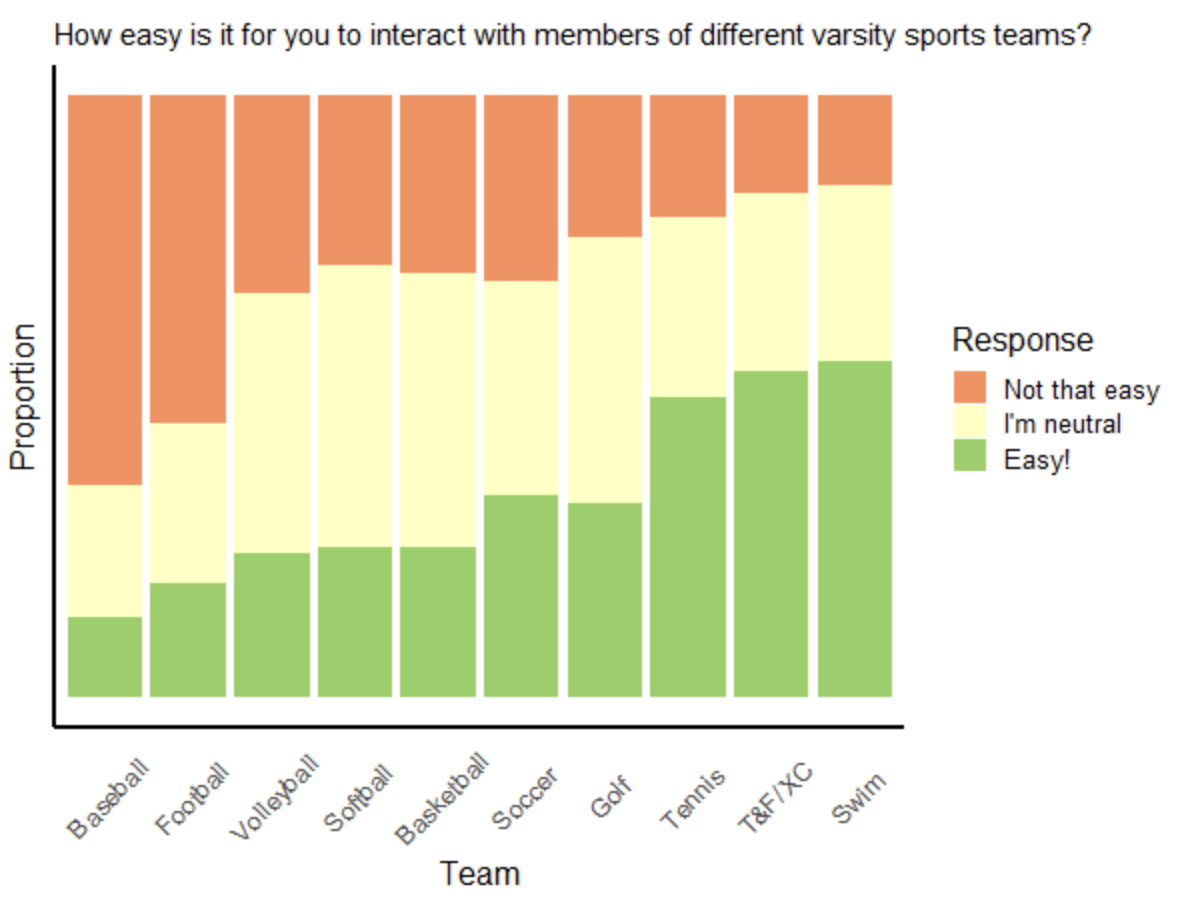Josiah Bushnell Grinnell, the namesake of both the town of Grinnell and Grinnell College, was a man of manifold legacies. A congressman, minister, Iowa state senator and ardent abolitionist, Grinnell’s life is still a source of continual interest to members of Grinnell’s town and College communities.
On Feb. 27, 2024, the Friends of Drake Community Library hosted speaker David Connon as a portion of their annual meeting. Connon’s presentation, “Josiah Bushnell Grinnell and the Iowa Underground Railroad,” was facilitated through the Humanities Iowa Speakers Board. Connon is a Poweshiek County-based independent researcher who has studied the history of Civil War-era Iowa for around two decades. Connon’s work began after he encountered a primary source that reported an 1860 riot in Grinnell. “This excerpt just caught my imagination, and I wanted to know who did it, who was responsible for such a thing,” Connon said.
Connon’s presentation covered a series of important events in the history of J.B. Grinnell’s life as well as in the history of the town of Grinnell itself. Born in 1821 in Vermont, J.B. Grinnell attended the Oneida Institute in upstate New York. The Oneida Institute was a seminary that emphasized the values of temperance and abolition, a radical curriculum in the early-19th century United States. These values were imparted onto J.B. Grinnell, who is credited with delivering what may be the first recorded openly-abolitionist sermon in Washington D.C.
Later, after temporarily leaving the pulpit, J.B. Grinnell traveled to the Midwest where he learned of the crossing of two railroad lines in the location that would eventually become the location for the town of Grinnell.
J.B. Grinnell envisioned the town of Grinnell as a place populated by “settlers of congenial moral and religious sentiment,” said Connon. Despite the strong abolitionist leanings of many of Grinnell’s earliest residents and the town’s role as a stop along Iowa’s Underground Railroad, Connon highlighted rising tensions in the years leading up to the American Civil War. From 1856 to 1860, J.B. Grinnell served as a member of Iowa’s State Senate, necessitating frequent trips away from Grinnell. This was also a period of tension in the town of Grinnell, during which Connon highlighted both abolitionist John Brown’s visit to Grinnell and an 1860 riot over Black freedom seekers’ attendance at Grinnell’s public school. During the Civil War, Grinnell served in Congress, holding office between 1863 and 1867.
Brown’s 1859 visit to Grinnell is also tied to the history of Edith Renfrow Smith `37, the first Black female graduate of the College, and her family. Monique McLay Shore `90, technology coordinator at Drake Community Library, is involved in an ongoing research project on Renfrow Smith led by Tamara Beauboeuf-Lafontant, professor of gender, women’s and sexuality studies. Researchers on “Team Renfrow” found sources in which Renfrow Smith’s grandfather, George Craig, indicated that he had been one of 12 freedom seekers traveling with Brown in 1859. Brown and the freedom seekers with whom he traveled spent two nights in J.B. Grinnell’s parlor and barn while others stayed in a local hotel, according to Connon.
“It was really through the work with Edith Renfrow Smith’s family, finding that article where her grandfather talked about traveling through Grinnell on the Underground Railroad, that brought it all together,” said Shore.
J.B. Grinnell’s life in Iowa is inseparable from the history of the 1842 forced removal of the Meskwaki from the land that Grinnell purchased four years later, in 1846. Jon Andelson, Rosenfield professor of social science, said that the principles that informed J.B. Grinnell’s abolitionist ideology “also show up in the case of the Meskwaki.” Andelson explained that the Meskwaki were violently persecuted by French forces further East during the decades-long Fox Wars, after which the Meskwaki spread into Iowa around 1735. In 1842, Meskwaki and Sauk tribes signed the land cession treaty with the United States government, after which settlers like J.B. Grinnell purchased land. The same treaty forced the Meskwaki to a reservation in Kansas. “They really wanted to stay in Iowa, but the army kept sending detachments of soldiers out to remove them back to Kansas,” Andelson said. Despite his purchase of former Meskwaki land, Andelson pointed out that Grinnell was involved in passing state legislation that allowed for the creation of the Meskwaki Settlement in 1856. “He strongly, vigorously advocated legislation to allow the Meskwaki to stay in Iowa, and that legislation passed,” said Andelson.
Though J.B. Grinnell played a significant role on both the national and local stage, Mike Guenther, associate professor of history and president of the Grinnell Historical Museum, said that interest in J.B. Grinnell is not as widespread as he would hope. “He is a genuinely important national figure. He has a generally super progressive record, and yet, I don’t know many people that are very interested in studying or working on him,” Guenther said.
Connon, Shore and Guenther all emphasized their hopes for further research into J.B. Grinnell’s life as well as the town of Grinnell’s early history. Speaking about J.B. Grinnell’s connection to the Underground Railroad, Shore said, “I think it could be better known, and I think it will be.”
“There’s a lot of good, interesting, exciting work to be done,” said Guenther. He also noted several “key nodes that are curating the history of the College and the town,” mentioning Professor Emeritus Daniel Kaiser’s blog “Grinnell Stories” and the Grinnell Historical Museum, along with Shore and Beauboeuf.
Resources for those hoping to learn more include the Digital Archives of Drake Community Library, which contains a page dedicated to the history of the Underground Railroad in Grinnell as well as Connon’s timeline of Iowa’s Civil War-era history. The Drake Community Library archive page is accessible at https://grinnell.lib.ia.us/.

